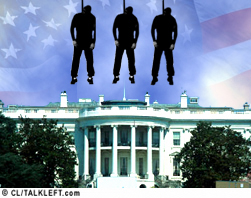On the night al-Harbi was injured they say. One of the other prisoners in the India block had yelled out the MPS had taken his Koran, which was not allowed because only Muslims can touch the Koran. The chaplains or Muslim librarian were supposed to take them.
For half an hour, the detainees banged on their cell doors in protest and shouted, "Allahu akbar," which means God is great. Then riot guards entered the block, Ali said.
The guards started beating prisoners in their individual cells, according to an account given to the Gulf Daily News last year by Abdullah al-Nuaimi, a former detainee from Bahrain who was also in India block at the time. A short while later, Nuaimi recalled, one of the guards shouted, "Turn on the lights!"
Then Mishal was carried out of his cell, Nuaimi said. Later that evening, guards confiscated all the blankets from India block. Ali said that when he asked why, he was told that the prisoner in cell No. 17 had tried to hang himself with one.
As to Mishal's injuries:
Mishal was unconscious for three months and spent an additional eight months hospitalized at Guantanamo. He was released into Saudi custody in July 2005, Fahd said, and sent home nine months later.
An investigation was launched and the Red Cross told Mishal's brother he had tried to hang himself.
Sitting cross-legged on the carpet in the family guest room, his frayed black leather wheelchair to his left, Mishal said he remembers that after the desecration of the Koran, a guard entered his cell. "He was carrying a shield. He pushed me with it. I don't remember anything else," he said, speaking with a heavy tongue.
His brother says:
"All the men who were released from Guantanamo, they are now leading a normal life," he said. "But Mishal can't walk, get himself a glass of water or go to the bathroom by himself. I just want him to go back the way he was before Guantanamo."
There's not enough in the article to conclude he was beaten rather than that he tried to hang himself. But, the family is right to seek compensation for his injuries and a better explanation.
Mishal's family says it is seeking not only financial compensation but also concrete answers from the U.S. government -- either an admission that Mishal was injured by guards or proof that he tried to kill himself. But given the intense secrecy surrounding the detainees at Guantanamo, finding out exactly what occurred that day in 2003 appears almost impossible.




